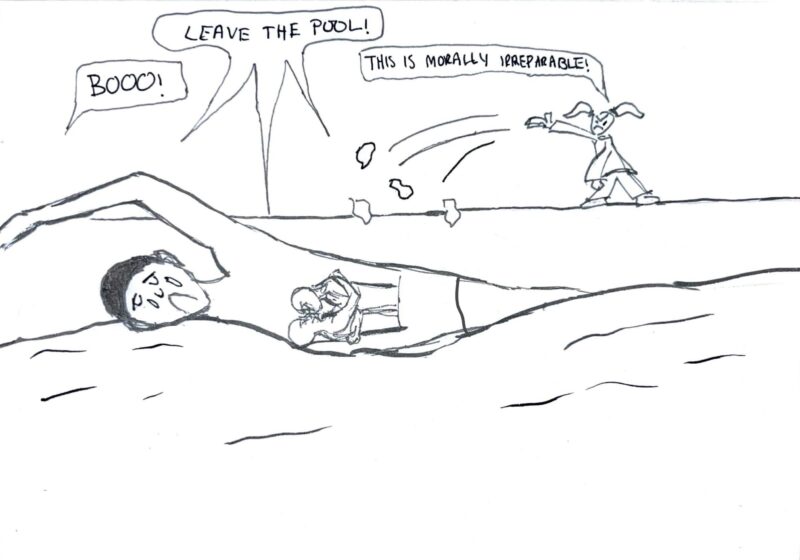In May, tension in Israel led to an 11-day war between Israel and Hamas. That far away war became a cudgel of hate against Jews in the diaspora for their perceived connection to the Jewish state. That swinging bludgeon of hate did not miss our campus, and as student awareness of the conflict exploded, so did libels against Jews, the Jewish state, Jewish groups, and Jewish life. Students made posts claiming that the movement for a Jewish state was inherently racist, that the Jewish state was nothing but a “settler colonialist” entity. Many reposted claims that amounted to blood libel, and other age-old antisemitic tropes of Jews controling the media, or being greedy money snatchers.
These ideas about Jews are not new; rather, they have been repackaged for a new purpose. Unfortunately, a new generation has fallen prey to the age-old lies about the Jewish people. Instagram stories have become a sort of echo chamber of the Protocols revived. Some don’t care to learn what a Jew really is, some try to erase our history. Thursday’s Medallion workshop demonstrated that not only have these ideas crept around the edges of our campus since the war, but rather have slowly permeated into the core of student life behind the scenes even as social media quieted down.
The Medallion program’s mission statement says: “The Medallion Program aims to educate student leaders by providing opportunities for intentional learning, self-reflection, and skill development. Students enrolled in the Medallion Program gain a strong sense of self-awareness, work effectively with others, and become civically and socially engaged.” Yet when confronted with the idea that the program might challenge preconceived notions of moral superiority amongst some students, they decided it was best to not engage in intentional learning, self reflection, and self-awareness, but to coordinate an attack against the materials being taught.
Students came with the intention of “ensuring accuracy” of a program run by a prominent Jewish group teaching about the Jewish perspective. This effort was coordinated publicly on Instagram, and included speaking over and attacking the presenter, and attempting to falsify the presented materials publicly in the chat and vocally.
These students were later the focus of a piece in the Campus Times, and portrayed as victims both in the article and a malicious headline that spread rapidly before being changed. That “news” article claims the presenter “silenced students,” the very same students who by their own statement only attended the program to “set the record straight.”
That article, written by this paper’s managing editor, made no effort to actually present an accurate portrayal of the events that occurred. In fact, the author did not reach out to any Jewish students who attended.
Joy, the presenter, impressively stayed calm. However, these students seemed to not be able to handle any ideas that challenged their own. They took to social media to not only attack Joy, but the Medallion program. Their actions spat in the face of the goals of the Medallion program, and were an exercise in intentional ignorance, self affirmation and echo-chamberism.
I hope to see this campus become more accepting of all, but it seems we are quite a ways off. There is fair debate to be had about Israel, but that talk was not the place for those discussions. We were meant to learn when and where the line between real dialogue and hate is drawn, instead those who came insisted there is no line.


